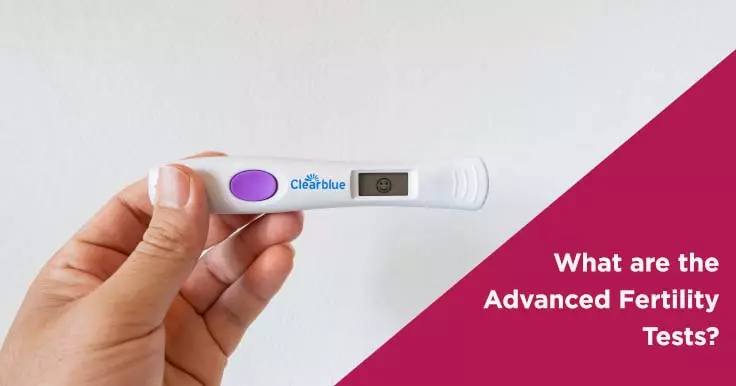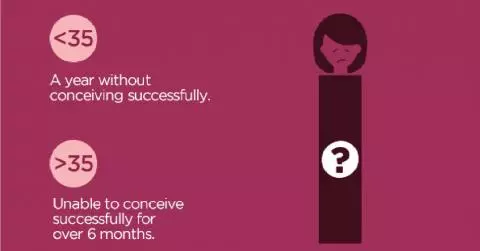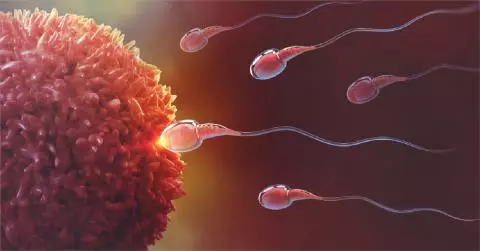Advanced Fertility Tests: What They Are and How They Help

Fertility rates across the world have been on a decline. It is now clear that both women and men begin the ageing process as early as the late 20s. Factors like rising housing prices and financial instability play a big role in how young couples plan to start a family, and there are a growing number of families who put off this decision to have babies for their mid or late 30s. But is it hard to get pregnant then?
Causes of Infertility
Getting pregnant can be a quick and easy experience for some and grueling and long for others. The latest statistics state that five out of 10 women face infertility issues and 16% of all couples undergo treatment with varying degrees of success. There are many factors that could contribute to infertility issues:
- The couples' age and medical history
- Lifestyle choices: regular consumption of caffeine, alcohol, smoking, lack of exercise
- Failure to ovulate
- Irregularities in the menstrual cycle
- Polycystic Ovary Syndrome (PCOS)
- Infertile semen
The list above is not exhaustive by any means, and, in most cases, a combination of factors play a role in causing infertility. This is why it is absolutely important to seek professional help with diagnosing the problem. A gynecologist will be able to guide you through the step-by-step process of getting the right advanced fertility tests so that starting a family is not a daunting task.
Advanced Fertility Tests
If you and your partner have been trying but unable to get pregnant for a year, there are several ways to get to the bottom of it. At the doctor's, one can expect some routine tests like a physical examination and blood tests (for hormone check). These tests are standard and will help your doctor rule out causes one by one. Some of the more common advanced fertility tests available for men and women include:
- Pap smear: to check for cervical cancer and other reasons that could be blocking a pregnancy
- Ovulation tests: to check if the woman can produce eggs
- Semen tests: to check if the man is infertile
- Ultrasound tests: to ensure the uterus and ovaries are functioning well
- Hormonal tests: to ensure the presence of certain hormones such as estrogen, progesterone and testosterone that aid in pregnancy.
- Luteal test: to check the progesterone levels in the body
- HSG Test: the process of inserting a dye into the fallopian tubes and uterus while an x-ray technician checks for abnormalities or blockages
- Endometrial Biopsy
An idea that has been receiving traction in the fertility testing world is DIY tests and pharmaceuticals have begun to create new ways of doing just that. But until this is tested and vetted, it is best to meet with a doctor.
Seeking out advanced fertility tests and finding answers can be emotionally exhausting. To cope with the ups and downs, it is recommended that couples:
- Be prepared for uncertainties
- Exercise and live a healthy life
- Get the support of family and friends
- Consider other options
 Infertility Counselling
Infertility Counselling Female Infertility Treatment
Female Infertility Treatment Andrology Treatment
Andrology Treatment Fertility Enhancing Surgeries - Female
Fertility Enhancing Surgeries - Female Fertility Enhancing Surgeries - Male
Fertility Enhancing Surgeries - Male Endoscopy Treatment
Endoscopy Treatment IUI Treatment
IUI Treatment IVF Treatment
IVF Treatment ICSI Treatment
ICSI Treatment Advanced IVF Solutions
Advanced IVF Solutions Embryology
Embryology Vitrification Egg, Embryo, Sperm Freezing
Vitrification Egg, Embryo, Sperm Freezing Preimplantation Genetic Testing (PGT)
Preimplantation Genetic Testing (PGT) Donation Program Embryo / Egg / Sperm
Donation Program Embryo / Egg / Sperm Self-cycleTM IVF
Self-cycleTM IVF

 Self-cycleTM IVF
Self-cycleTM IVF









